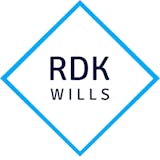What is a trust and how does it work?
A trust is a way of managing assets such as money, investments, land or buildings for people.
There are three parties to a trust: -
- The owner of the Trust is the Settlor
- The person or persons who manage the Trust are the Trustees
- The person or persons benefiting from the Trust are the beneficiaries

Trusts can be set up for a number of reasons, including:
- To control and protect family asset
- To handle their affairs of someone too young
- If someone is incapactitaed and cannot handle their affairs
- To pass on assets while you’re still alive
- To pass on assets when you die (a ‘will trust’)
- Under the rules of inheritance if someone dies without a will in England and Wales
If you have any questions about making a Will or your estate planning needs, then please get in with contact us.
Simply enter your details below for us to help you.
By submitting this data, I am consenting to the use of my data in line with our Privacy Policy
What is 3 + 2 =
What can a person do with a Power of Attorney?
You can appoint someone with the Power of Attorney to deal with your property and financial affairs, such as operating a bank account, buying and selling property, or changing investments.
What is the meaning of Probate?
Probate is the process of dealing with the Estate of a person who has died, such as clearing their debts and distributing their assets in accordance with their Will.
Can you write your own Will?
You can write your own Will. You should seek advice if your Estate is not straight forward or if you wish to make sure you do not pay more inheritance tax than you need to.
What is a Trust, and how does it work?
A trust is a legal arrangement where trustees control assets or money, which must be used to benefit one or more people listed in the Trust.
Do I need Probate if there is a Will?
Usually, Probate or Letters of Administration are required for an Estate to be dealt with if a property is included.
Frequently Asked Questions
If you have a specific question, click the button below, and we will do our best to answer this for you.
If any of the reasons above relates to you, or someone that you care for, then a trust may be beneficial.
The next stage is to seek expert advice, there are different types of trusts and they are taxed differently.
For an initial chat with no obligation call 07939 524788
What is the advantage of a trust?
- Trusts are used as they avoid the probate process.
- While assets controlled by your Will have to go through probate in order to be verified and distributed according to your wishes, Trust assets usually don't.
- A Trust agreement stays private, while a will becomes a part of public record.

What are the main types of Trusts?
- Discretionary Trusts - The Trustee/s can make certain decisions about how to use the trust income, and sometimes the capital, for the benefit of say a grandchild or a beneficiary not capable of dealing with money.
- Accumulation Trusts - This is when the Trustees are able to accumulate income within the trust and add it to the trust’s capital. They may also be able to pay income out, as with discretionary trusts.
- Interest in Possession Trusts - This is when the Trustee/s must pass on all trust income to the beneficiary as it arises, less any expenses.
- Mixed Trusts - This is a combination of more than one type of trust. The different parts of the trust are treated according to the tax rules that apply to each.
- Settlor-interested Trust - This is where the person who created the Trust, the settlor, retains some or all of the benefits attaching to the property which they have given away. Where the settlor transfers assets to Trustees for the benefit of himself, their spouse, civil partner or family, and the Trust allows income or capital from the Trust assets to be paid to the Settlor. The Trust could be an Interest in Possession Trust, an Accumulation Trust or a Discretionary Trust.
- Non-resident Trusts - This is where the trustees are not resident in the UK for tax purposes.
- Bare Trusts - This is the simplest of Trusts, often used to pass assets to young people. The Trustees look after them until the beneficiary is old enough.
Every circumstance is different, so it is vital that you seek expert advice to find the right solution for you.
For an initial chat with no obligation call 07939 524788
Is it a good idea to put your house in a trust?
In most cases, our homes are the most important and expensive assets we own and perhaps our only true legacy to leave to our loved ones.
By changing the way, we own our homes at the Land Registry from ‘Joint Tenants’ to ‘Tenants in Common’ and creating a Trust upon your death, you can ensure that your share goes to your chosen beneficiaries whilst your partner remains in your home until their death.

Creating a Property Protection Trust can:
- Protect your share of your home from potential care cost fees.
- Provides a ‘right to reside’ for your partner.
- Protects your children against disinheritance.
The first step is to seek expert advice and tailor a solution to meet your needs.
For an initial chat with no obligation call 07939 524788
What are the disadvantages of a trust?
A trust enables the transfer of an asset from the Settlor to the Beneficiaries, managed by a Trustee(s), often with tax advantages.
It can be a complicated process. While there are many advantages, there are disadvantges, so you should consider what is best for you, your family and your estate.

The major disadvantages of a Trust are:
- Perceived irrevocability - Trusts can be made revocable. However, this may increase taxes payable such as estate duty, asset protection and stamp duty.
- Loss of control over assets - Once an asset is put into Trust, the Settlor will no longer have control over the asset.
- Potential additional costs - The cost of appointing a Trustee, Property registration, filing fees and record keeping.
It is always wise to consult experts to understand what is best for you.
For an initial chat with no obligation call 07939 524788


